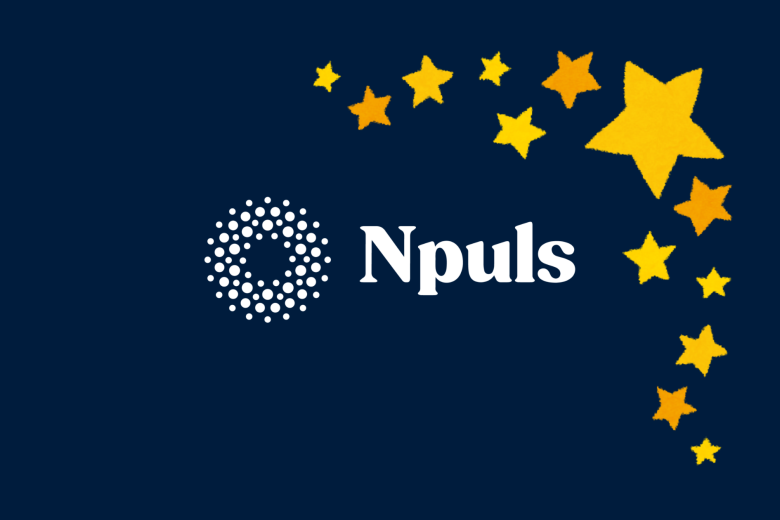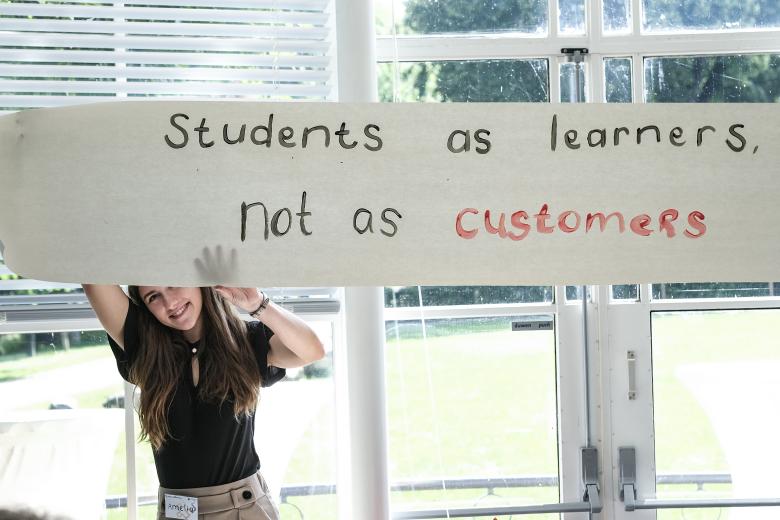Avoid high-heeled shoes at a standing table - Pilot project with standing tutorials
A standing tutorial: is it healthier, better for group dynamics and learning? Experiments are being carried out at University College Maastricht and in the Maastricht Science Programme. “Sometimes I have classes from eight to half past six in the evening. Standing between sessions keeps me awake.” A tip: kick high-heeled shoes under the table.
Seven students from the Maastricht Science Programme who have gathered this Thursday morning for a tutorial, will be talking about tropical ecology. Ordinary building: Minderbroedersberg 6. Ordinary classroom: square, four tables, eight chairs, and a whiteboard. A little on the boring side.
Just before eleven, a few students have already dropped into chairs. Roy Erkens, lecturer and researcher, enters the room. He presses a button and up comes the desk. Students follow his example; in no time, there are four standing tables. The chairs serve as racks for coats and bags for the next two hours.
It was Erkens who introduced the standing tutorial last year. “I sometimes spent hours teaching in one day, I became tired of sitting inactively. That is when I started standing up. Students did it too. The electrically adjustable desks are wonderful to work at, but in the beginning I just used a regular standing table.” He points to a folding model resting against the wall. Of course I was a little sceptical, afraid that the students wouldn’t like it, but my wife said: ‘They stand in a pub for hours, don’t they?’”
Read the rest of the article in Observant, November 2015.
Go to EDLAB's Education That Moves You project page.
Also read
-
PREMIUM is looking for new projects!
Are you or do you know a business owner or an employee in a public, commercial, or non-governmental organisation with a project that could benefit from fresh perspectives? An interdisciplinary team of excellent PREMIUM students might be just what you’re looking for.

-
Maastricht University receives funding to strengthen its role in national education programme Npuls
We're happy to announce that Maastricht University has been awarded a €80,000 funding to strengthen its involvement in Npuls.

-
UM Education Days 2025 recap: "Learning never stops"
From inspiring keynotes to bold classroom experiments, this year’s edition reminded us all: Learning never stops.
